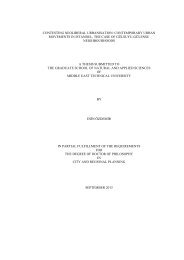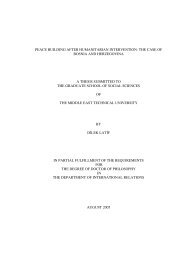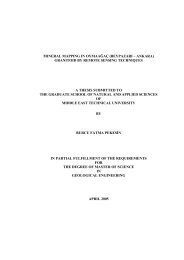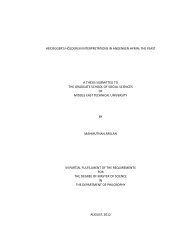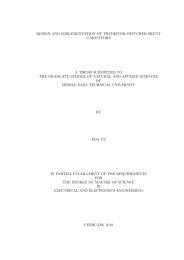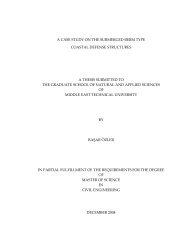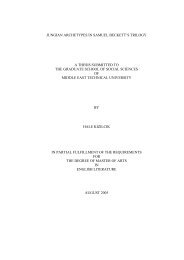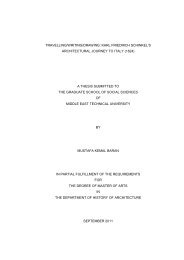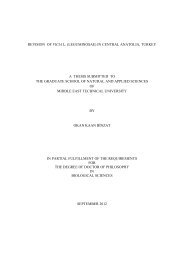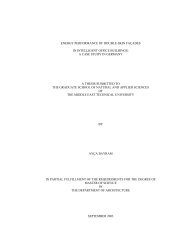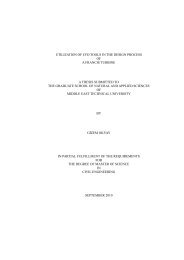View Original - Middle East Technical University
View Original - Middle East Technical University
View Original - Middle East Technical University
Create successful ePaper yourself
Turn your PDF publications into a flip-book with our unique Google optimized e-Paper software.
mechanisms no longer had a foothold in prices; and, institutions salvaged a modicum<br />
of coherence between average growth of wages and industrial productivity. On top of<br />
that, working-class consumption as well was an element in this revved-up<br />
productivity; standardised mechanisation(i.e. mass production) afforded standardised<br />
commodities which wage-earners then purchased(i.e. mass consumption); ‘Fordism<br />
precisely marked the entry of goods produced with significant productivity gains into<br />
wage-earners’ consumption’.<br />
Furthermore, regulationists have been the indignant votaries of empirical analysis and<br />
‘marvelled at this... with the ardour of neophytes: ‘this return to empirical assessment,<br />
even when difficult and invariably unsatisfying given the precise origin of statistics<br />
used, introduces the possibility of refuting the initial theoretical framework, however<br />
satisfying it might be from a strictly logical standpoint[(Bertrand et al., 1980)]’(ibid.).<br />
Alas, in that and on many other quodlibets, regulation theory was not even nominally<br />
au fait with any ‘living Marxism’.<br />
2.2 Political Economy of Crisis<br />
Not all economic theories are fond of crisis as explanandum. In fact, neoclassical<br />
economics considers crises unco in terms of the spontaneous bliss of market<br />
economies. Markets supposedly are mechanisms that are utterly recalcitrant to any<br />
felo-de-se. For that mainstream, crises are thereby sabotages to the price system from<br />
the outside. Such an understanding often scandalised Marx for whom the cyclical<br />
crises of the capitalist mode of production were absolute intimations of its inner<br />
contradictions in that sudden devalorisation of capital values stemmed from capital<br />
valorisation itself. So there is first this fact that capitalist crises as crises of capitalist<br />
accumulation have never stagnated into an inaudible aside in much of Marx’s analysis<br />
and Marxist political economy. Needless to say, crisis as explanandum are totemic to<br />
any theory of social/historical change. Yet crisis has even a fiercer bite on a theory<br />
such as Marxism which profusely anticipates the self-extinction of capitalism as a<br />
mode of production(i.e. its radical transformation). Therefore almost all Marxists are<br />
20



